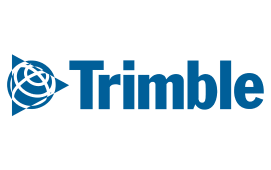Strategies for Navigating the Tariffs in 2025
How the 2025 Trump Tariffs Are Reshaping the Electrical Construction Industry
In 2025, the electrical construction industry faces significant challenges due to the reimplementation of tariffs by the Trump administration. These tariffs, aimed at promoting domestic manufacturing and addressing trade imbalances, have led to increased costs and supply chain disruptions, impacting contractors nationwide.AP News
🔧 Key Impacts on Electrical Contractors
1. Escalating Material Costs
The imposition of a 25% tariff on steel and aluminum imports has directly affected the prices of essential materials such as conduits, panels, and structural components. Additionally, a 10% universal tariff on all foreign goods has further inflated costs for items like copper wiring and transformers. These increases strain project budgets and reduce profit margins.Home+2Davron+2The Budget Lab at Yale+2
2. Supply Chain Disruptions
Tariffs have disrupted global supply chains, leading to delays in the procurement of critical electrical components. Contractors face challenges in sourcing materials, resulting in project delays and increased costs due to the need for expedited shipping or alternative sourcing.
3. Contractual and Budgetary Challenges
Fixed-price contracts are particularly vulnerable, as unforeseen cost increases due to tariffs cannot be easily passed on to clients. This situation forces contractors to absorb additional costs, potentially leading to financial strain and reduced profitability.
4. Shift Towards Domestic Suppliers
In response to tariffs, many contractors are seeking domestic suppliers to mitigate import-related costs. However, the sudden increase in demand for domestically produced materials has led to shortages and further price escalations, complicating procurement strategies.
💡 Strategies for Navigating the Tariff Landscape
1. Proactive Contract Management
Incorporate escalation clauses in contracts to account for potential material cost increases. This approach allows for adjustments in pricing, safeguarding against unforeseen tariff-related expenses.
2. Diversified Sourcing
Develop relationships with multiple suppliers, both domestic and international, to ensure flexibility and resilience in the supply chain. This diversification can help mitigate the impact of tariffs and supply disruptions.
3. Enhanced Estimating Practices
Utilize advanced estimating tools and services to accurately account for fluctuating material costs. Partnering with specialized estimating firms can provide up-to-date pricing information, ensuring more accurate and competitive bids.
4. Strategic Project Planning
Adjust project timelines and budgets to accommodate potential delays and cost increases. Early procurement of materials and flexible scheduling can help manage the uncertainties introduced by tariffs.
📈 Looking Ahead
The reimplementation of tariffs in 2025 has introduced significant challenges for the electrical construction industry. By adopting proactive strategies and leveraging specialized resources, contractors can navigate this complex landscape, maintain competitiveness, and continue to deliver successful projects despite the economic headwinds.
For more information on adapting to the current market conditions and optimizing your estimating processes, consider consulting with industry experts or specialized estimating services.

Contact Us
Schedule a Consultation
(*) - Required field
Our Partners




